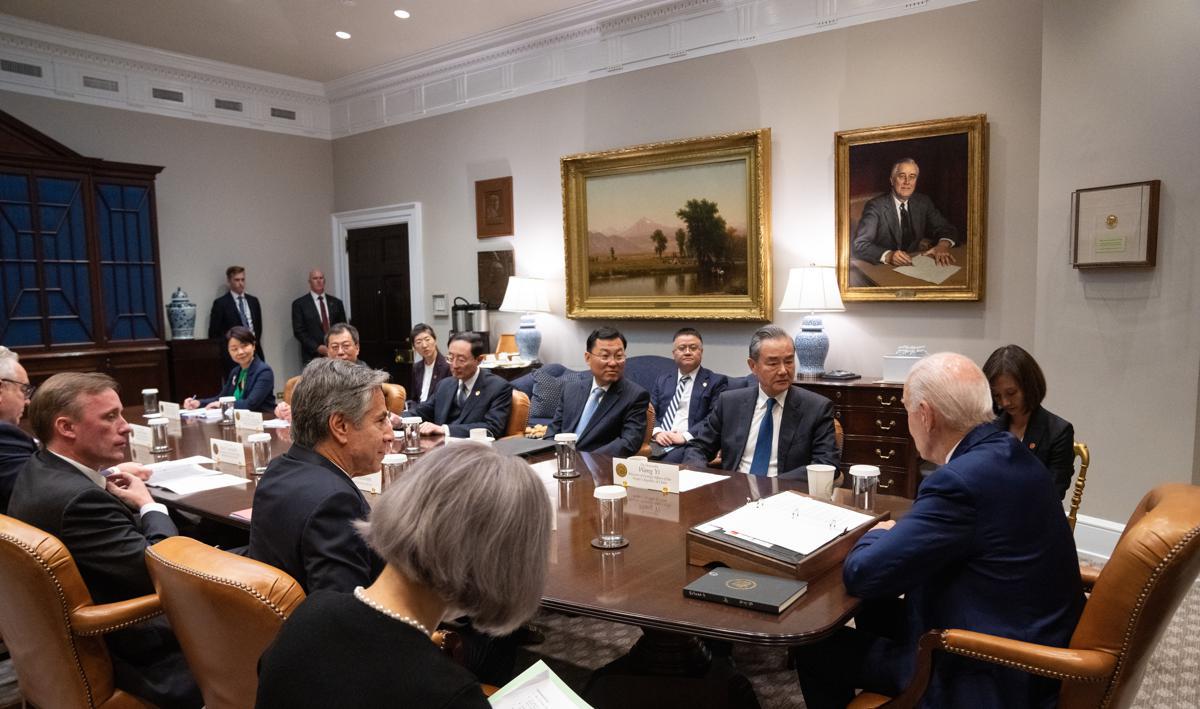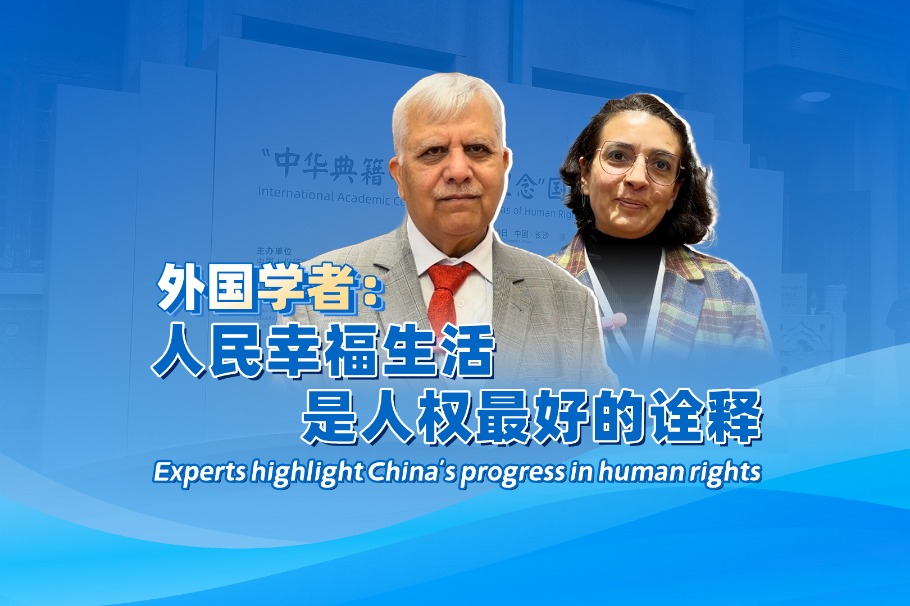Honoring consensus holds key
By ZHANG YUNBI | China Daily | Updated: 2023-10-30 00:54

Revisiting and effectively honoring the consensus reached at the China-US presidents' meeting in Bali, Indonesia, last year is a much-needed step toward making possible another face-to-face meeting of the two leaders in San Francisco next month, officials and experts said.
They commented as Foreign Minister Wang Yi concluded his whirlwind visit to the United States over the weekend.
From Thursday through Saturday, Wang had a packed schedule, meeting with US President Joe Biden, National Security Advisor Jake Sullivan and Secretary of State Antony Blinken, among others.
"Both sides agreed to work together toward realizing the San Francisco heads-of-state meeting," according to a Foreign Ministry news release following Wang's talks with Sullivan.
During a symposium with US strategic policy watchers on Saturday, Wang noted that "the road to San Francisco" will not be a smooth one and cannot rely on the "autopilot" mode.
For this reason, the two sides should effectively return to what was achieved in Bali, put the consensus of the two heads of state into practice, remove interference and overcome obstacles, Wang said.
The two largest economies in the world have seen tensions simmering this year over topics such as the Taiwan question and Washington's sanctions targeting China's semiconductor sector.
Wang's trip came following visits to China in recent months by senior US officials such as Blinken and Secretary of Commerce Gina Raimondo, as well as a bipartisan delegation of US lawmakers.
Speaking with Biden on Friday, Wang said, "China attaches importance to the US hope for stabilizing and improving relations with China".
The one-China principle and the three China-US joint communiques are the most important political foundation for the bilateral relationship, he added.
Biden elaborated on his position of valuing ties with China, saying that the US is willing to maintain communication with China and jointly address global challenges.
In addition to inviting China to attend the Asia-Pacific Economic Cooperation meeting in San Francisco in mid-November, the US has sent a separate invitation to China for a summit between President Xi Jinping and President Biden at the APEC venue, a Foreign Ministry official who requested anonymity told China Daily on Saturday.
Su Xiaohui, deputy director of the Department of American Studies at the China Institute of International Studies, said that "staying true to the reached consensus is a prerequisite for enabling the next presidential meeting and keeping the relations from spiraling out of control".
She noted that Washington has recently been publicly seeking more communication with Beijing for realizing the heads-of-state meeting in San Francisco next month.
"China has not rejected such communications. … Washington should work toward the same goal alongside Beijing if it seeks the ties' early return to being back on track," Su added.
During the trip, Wang said the biggest challenge to China-US relations is "Taiwan independence", which must be resolutely opposed by taking concrete policies and actions.
Su said the great importance that China attaches to the Taiwan question "is a clear reminder that Washington will not see stable ties with Beijing if it blatantly plays the 'Taiwan card'".
While Wang's meeting with Biden lasted for about an hour, more than double what was planned, Wang and Blinken met for more than seven hours over the two days, had dinner together and held "comprehensive" and "in-depth" discussions, the Foreign Ministry official said.
As part of the progress made during Wang's trip, the two sides agreed to further increase direct passenger flights between the two nations and to maintain strategic communication.
In talks with Blinken, Wang noted that "the common interests of China and the US are greater than their differences and contradictions".
Wu Xinbo, dean of Fudan University's Institute of International Studies, said, "With its experience of dealing with China over the past three years, the Biden administration has realized that it is unlikely for the US to achieve full-scale economic 'decoupling' from China."
The pursuit by both sides of improving the ties is driven by mutual needs, he said.
"There could be a very long list of topics that require collaboration between the US and China," he added.
The nations' annual two-way trade reached a record high of nearly $760 billion in 2022, according to China's General Administration of Customs.
At a symposium with business leaders on Saturday, Foreign Minister Wang said that China appreciates that the US business community has overcome difficulties in the ties and remained committed to advancing two-way friendship, and that "the space remains broad" for win-win bilateral cooperation.
Zhao Huanxin in Washington contributed to this story.
























